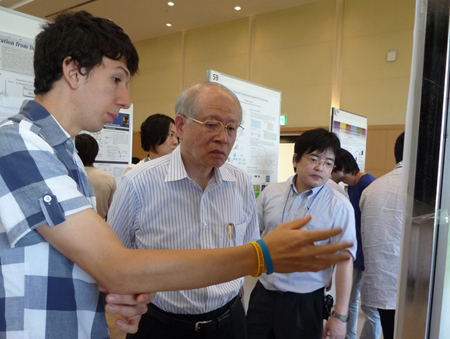Marcus Gallagher-Jones is from Liverpool, UK, and is studying a PhD based at RIKEN, a research institute in Japan. He graduated from the University of Durham in 2010 and is now working with Professor Samar Hasnain at the University of Liverpool’s Institute of Integrative Biology.
Marcus is investigating new methods for analysing proteins in the body to support scientists in identifying new drugs for targeting future diseases. His work includes a two year period at RIKEN, Japan’s flagship research organisation that carries out studies in areas such as biology, infectious disease, brain science, and plant science.
The study of molecules in the body at atomic level is mainly reliant on methods that stimulate proteins to emerge from a solution to produce crystals. This allows X-ray beams to interact with the atoms of a protein in such a way that scientists can visualize the inner-workings of the molecule. These methods, however, are particularly difficult when targeting proteins in cell membranes, which are significant to industries that are developing drug targets for a large number of human diseases.
Major challenges
Marcus explains: “I am developing systems and methodologies to obtain information from single molecules using a new technology called a X-ray Free electron laser (XFEL). This provides pulses with high densities of X-ray photons – or light – in a very short time frame. I am working at the RIKEN Harima Institute to develop a variety of systems to allow single molecules to be aligned to individual XFEL pulses so that we can understand how they work.
“It is a major challenge as the molecules and the X-ray beam are not visible to the human eye and different signals can interfere with each other if multiple molecules interact with the same pulse. If we succeed in overcoming these difficulties, however, it could provide valuable information about the human body that may, in the future, support the development of drugs for tackling some of the world’s most common diseases.”
Marcus will conclude his work at Riken in 2013 and return to Liverpool to complete his PhD. His work with the Institute forms part of a joint international graduate programme between the University and RIKEN that enables PhD students studying biological and physical sciences at Liverpool to spend up to two years at one of RIKEN’s research institutes.
